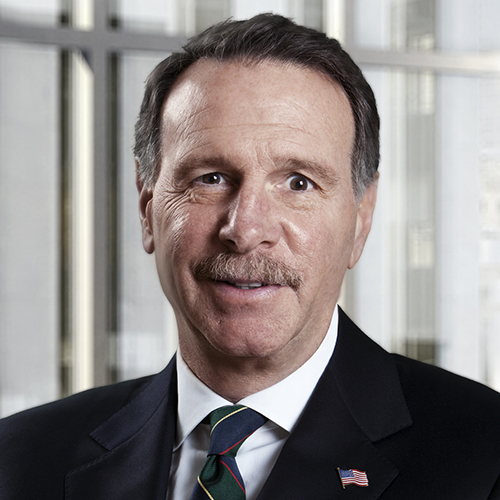Commentary - December 2023Marketfield L/S Fund
In the commentary below, Portfolio Managers Michael Aronstein and Michael Shaoul, Ph.D. discuss the Federal Reserve’s rate actions, how the Fund is positioned, and the Fund’s emphasis on reducing risk while allowing investors to participate in global equity markets.
Would you please summarize your thoughts on the market in 2023?
In 2023, the market favored growth stocks. Even in the face of higher inflation and higher interest rates, there was no indication that consumer and business demand and investment diminished. There continues to be a large amount of liquidity in the global system. In addition, while the U.S. economy appears to be in good shape, the rest of the world has experienced a slowdown, led by China as well as Europe, resulting in a pullback in commodity markets which is tied to global demand. By the end of the year, we saw some indications of stabilization but nothing conclusive.
Looking ahead, the Federal Reserve appears to be declaring victory over inflation and may cut rates 2-4 times in 2024. The outstanding question is if the economy will cooperate. We remain skeptical, as we believe it will be challenging to get inflation to stay below 3%. Therefore, we maintain our long positioning in cyclical businesses engaged in manufacturing, production, transportation, materials, and related inputs.
How is the Fund positioned in light of these thoughts on the global economy?
As of December 31, 2023, the Fund’s net long position was 57.3%. Throughout the year, it ranged from about 40% to 60%. The short book continues to focus on select financial companies with exposure in private equity lending and asset markets in an attempt to exploit the vulnerabilities we identified in financial markets due to the Fed’s rate actions.
One notable area of interest as we head into 2024 is Japan. Notably, the Nikkei 225 Index of Japanese stocks recently hit a multi-decade high while Mainland Chinese stocks are at a multi-year low. This disparity may indicate that China is losing its influence over other Asian markets, allowing Japanese equities to continue their climb.
In contrast with many other global central banks, the Bank of Japan has kept interest rates low to encourage higher inflation. Given its continued low rate environment, as a primarily export-driven economy, Japan offers many high-quality manufacturing and cyclical companies that could do well in 2024.
What are your thoughts on precious metals, specifically gold?
As it pertains to precious metals, the price of gold closed at a near-record level in December 2023, delivering double-digit returns over the year. However, many U.S. investors lack interest in gold compared to global investors. With mining stocks driven by U.S. sentiment as opposed to Chinese or Japanese sentiment, many of these equities had lackluster performance in 2023. We believe many mining stocks will eventually be recognized for their quality of earnings.
Interestingly, the price of gold has been trending higher yet U.S. gold ETF flows have declined over the past 14 months, which is unusual. In fact, since gold ETFs were created 18 years ago, there has never been a period where the price and gold exposure have diverged so dramatically.
What role does the Cromwell Marketfield L/S Fund play in an investor’s portfolio?
The Fund seeks long-term growth above that of the broad equity market over a full market cycle with lower volatility. For example, as of December 31, 2023, the Fund provided nearly 39% less risk as measured by standard deviation compared to the S&P 500 Index over the 3-year period. For investors wanting to participate in the global equity markets with less risk, the Fund could serve as a potential solution.
Lower Standard Deviation Than the Overall Market
| 3 Yr | 5 Yr | 10 Yr | |
|---|---|---|---|
| Fund (Institutional Class) | 10.78 | 13.11 | 10.96 |
| S&P 500 Index | 17.54 | 18.52 | 15.19 |
| % Difference | -39% | -29% | -28% |
Source: Morningstar. Standard deviation is a statistical measure of historical volatility. The S&P 500 Index is a capitalization-weighted index of 500 stocks. An investment cannot be made directly into an index.
The Nikkei Index, or the Nikkei 225, comprises Japan’s top 225 companies listed on the Tokyo Stock Exchange.
